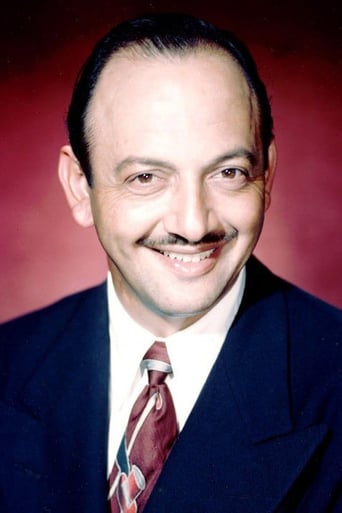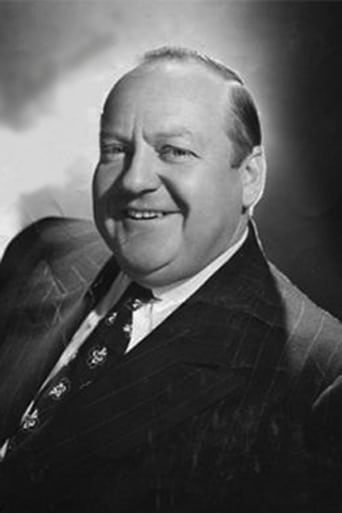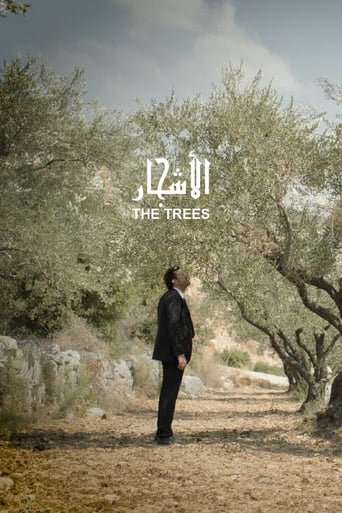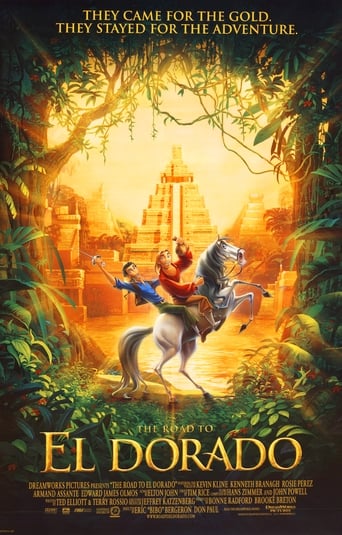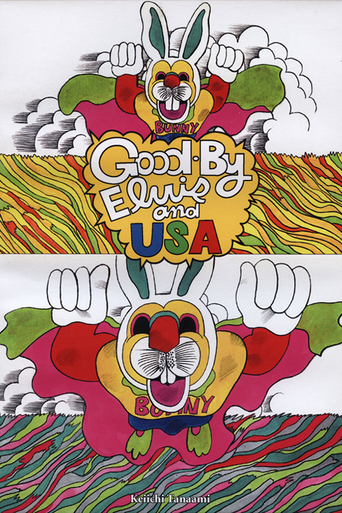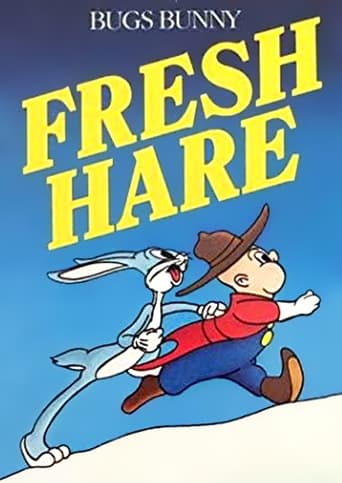
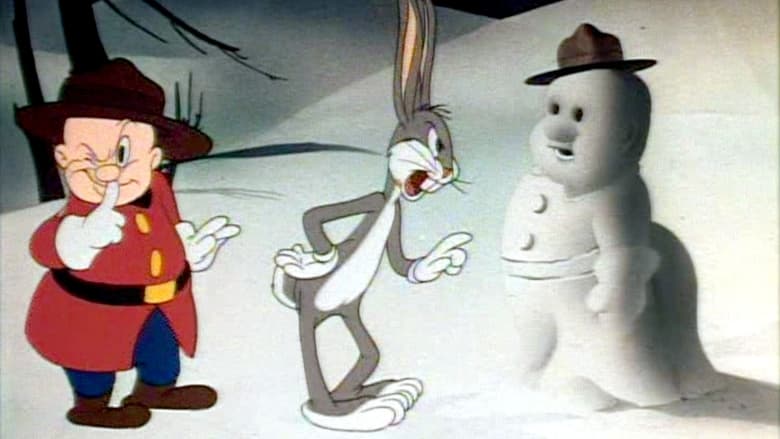
Fresh Hare (1942)
Bugs Bunny is wanted "dead or alive" by the Mounted Police, led by Elmer Fudd. The "Fresh Hare" episode was banned from television for almost 30 years because it was considered too racey for the time.
Watch Trailer
Cast
Similar titles
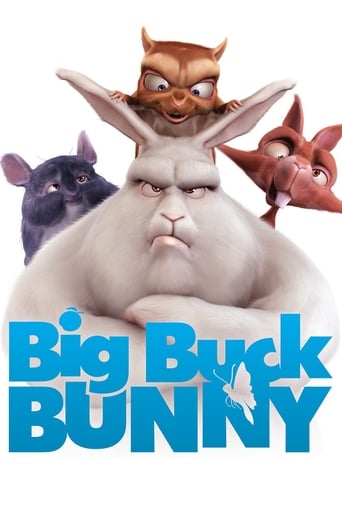
Reviews
One of my all time favorites.
It's entirely possible that sending the audience out feeling lousy was intentional
it is finally so absorbing because it plays like a lyrical road odyssey that’s also a detective story.
Fun premise, good actors, bad writing. This film seemed to have potential at the beginning but it quickly devolves into a trite action film. Ultimately it's very boring.
Bugs and Elmer always work well together and are enough to brighten up a hard day. And Fresh Hare, a very early effort(one of their first I believe), is no exception. Bugs is as crafty yet likable as he ever was, and while somewhat smarter than usual Elmer contrasts and works to great effect with him. Mel Blanc and Arthur Q. Bryan voice them impeccably. Several other great things work in Fresh Hare's favour. The animation is detailed and luscious, of course Elmer is fatter than we usually see him and Bugs more elongated but they are still well drawn within this stage in Looney Tunes animation. The music is full of energy and character, and is always pleasant on the ears. The dialogue is as witty and funny as ever, and the gags are clever and imaginative. The story is simple but with never a dull spot, it is fun all the way through. I do agree though that the ending is random and rather awkward(some may also find it tasteless). Overall with this in mind, Fresh Hare is great. 9/10 Bethany Cox
Bugs Bunny is the last surviving rabbit in the countryside or, at least, I presume this to be true, because Elmer Fudd seems to have killed and eaten quite a few! This particularly-rotund version of Fudd was a short-lived design used in five cartoons in 1941 and 1942, and was based upon the dimensions of voice actor Arthur Q. Bryan, who played him. In 'Fresh Hare (1942),' Fudd braves the snow and ice of the Canadian wilderness (where his added layers might actually come in handy) to capture the wanted outlaw Bugs Bunny, who is charged with a long list of crimes, everything from jaywalking to "conduct unbecoming to a wabbit." Of course, Bugs has little respect for the Royal Canadian Mounted Police (colloquially known as the "mounties") and, as might be expected, has no intentions of surrendering without a fight.This cartoon, while nothing particular special amid a vast catalogue of similar Bugs-Fudd encounters, has enough interesting and funny moments to keep the viewer entertained for the full seven minutes. After the inept hunter tracks Bugs to his rabbit-hole, via a trail of graffiti-vandalised WANTED posters (and a rather risqué picture of a woman), he discovers that finding the fugitive was only the beginning of his troubles. When Bugs finds himself handcuffed early in the film, we're certain that this couldn't possibly be the end of the struggle, and, sure enough, the rabbit somehow contorts himself out of custody and replaces his wrist with a fuse-lit bomb. Later, Fudd is stripped off all his clothing well, almost all his clothing and left completely exposed to the elements, while Bugs makes a quick getaway; there are also a few amusing visual gags with the characters' outlines in the ice.Having seen Tex Avery's 'The Heckling Hare (1941)' earlier today, I noticed that here director Friz Freleng recycles one of the gags from that film, as Bugs' ears miraculously separate to avoid an obstacle as he darts through the deep snow. Most often nowadays, 'Fresh Hare' is noted only for its somewhat controversial ending, which has subsequently been censored by do-gooders to gloss over America's darker racial history. Personally, I didn't really find anything particularly wrong with the ending, in which Bugs bursts into a chorus of "I Wish I Was in Dixie" and the cast briefly performs a few lines of "Camptown Races" in black-face. True, it's completely random and doesn't contribute much to the story, but my greater annoyance, in any case, is with the attempt to alter the film itself, which I regard as cultural vandalism in a sense. Keep an eye out for the unedited version.
What a wonderful cartoon. Great for historians and children. Well, except the end. But any who, yeah. Bugs Bunny is under arrest on a lot of charges. In the end, he turns himself in after Elmer cries because he couldn't catch him and he's a disgrace to the regiment. Bugs Bunny turns himself in to make him feel better. In the end, when he is about to get shot and has to make one last wish, he takes off his blindfold and sings, "I Wish I Was In Dixie!". Everyone starts singing. Odd ending.Like I said before, I recommend this cartoon for historians and children. Or if you just like to watch old cartoons, or cartoons from your time, I recommend this too.Also, I just want to name my favorite part. When Bugs Bunny kisses Elmer and digs himself a hole again.
In "Fresh Hare", an obese Elmer Fudd is a Mountie and out to get Bugs Bunny. Needless to say, Bugs isn't going to get trapped so easily. This is just one of many cartoons showing why the Looney Tunes outdid the Disney stuff easily. The scene where Bugs "drops" Elmer out of the service is enough to make anyone die laughing, as is the scene where they run through the ice. There is, however, one scene likely to make us nervous - and possibly doubt the whole cartoon - in the 21st century: at the end, they do a minstrel show, complete with black-face. But other than that, the whole thing's a hoot. Truly classic.Like Michael Moore reminds us: Canada is the greatest place on Earth.
